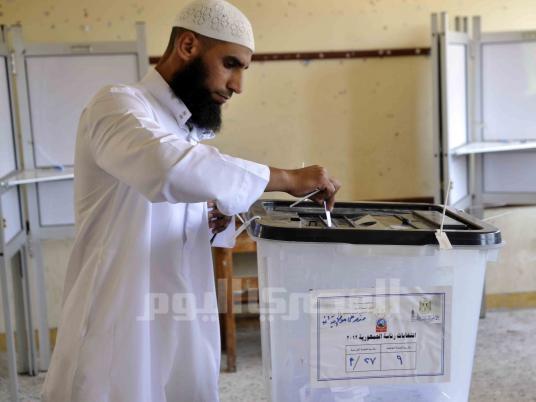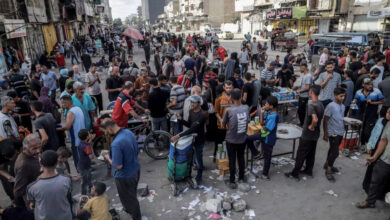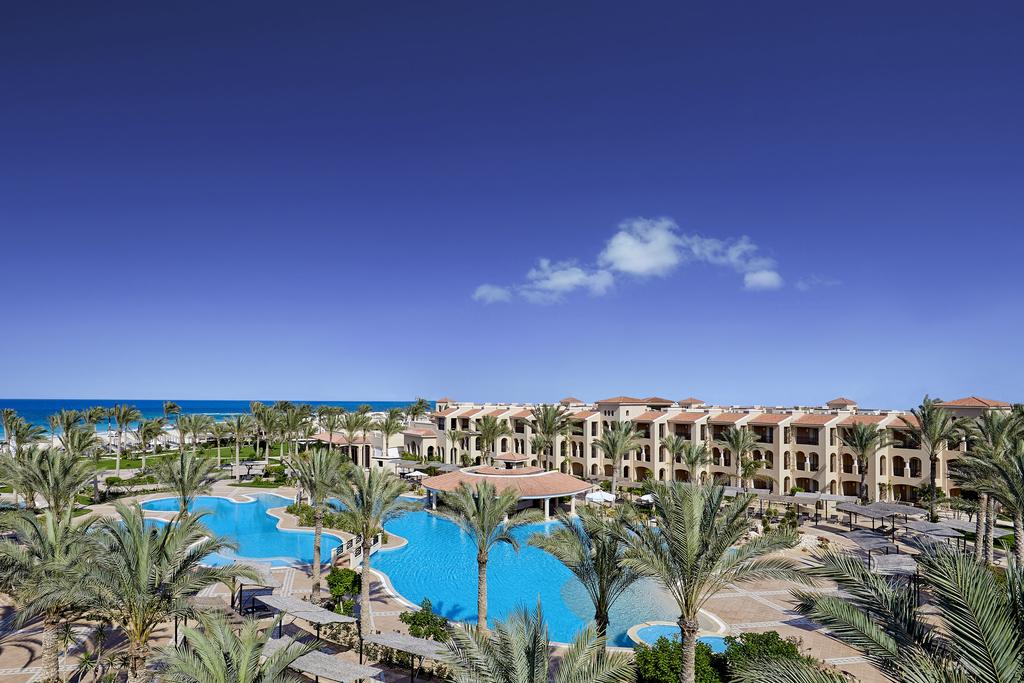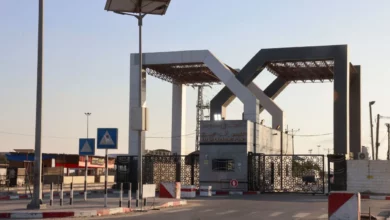
ARISH — As President Mohamed Morsy met with community leaders in the capital of North Sinai, residents of the neighborhood where the meeting was held congregated after they were prevented by security from joining the meet-up. Many of them carried hand-written notes for the president.
In some of these notes, they complained that in the neighborhood, when it is not blessed by a presidential visit, power cuts are consistent.
Living in the dark is just one aspect of Sinai's development needs, which only multiply once one steps out of Arish, heading to the peripheries or to the more impoverished Wasat, or central Sinai.
Development in North Sinai, as manifested in trade, investments, industrialization and the ensuing repopulation, has been repeatedly curbed by political considerations, with the border area often perceived as a vital vehicle of security for the region at large. Yet, with the proliferation of attacks against police stations, checkpoints and other relics of the state, and with the appearance of some forms of Islamist insurgency, a divergent view has emerged, and talk about the strategic need to develop Sinai as a means to combat its security defects has been abundant.
Propositions for development have not been short of contentions. While some support a strong state role in development, given the geographical sensitivity of the region, others are cynical of that role, citing the possibility of corruption and its propensity to enrich only a few.
A free trade zone with the Gaza Strip was briefly proposed by some state officials before presidential statements asserted that it wouldn't happen. On the ground, the idea is received with mixed feelings.
Abdallah Qandeel, head of the Chamber of Commerce in North Sinai, is enthusiastic about the free trade zone, deeming it the most straightforward and foreseeable state intervention for development in Sinai.
"We're not even saying let's dig canals and build dams. We are just saying we need legalized trade with Gaza. You have 1.8 million consumers across the border. They have very strong purchasing power. Why does all this have to go through the tunnels?" he says.
That's not the thought shared by many of those working in the lucrative tunnel economy. In the border town of Rafah, where goods smuggling to Gaza has thrived for years now, the underground economic activity is a public secret.
Here, the landmarks of the town's landscape consist of recently dug tunnels, recently destroyed tunnels, warehouses, trucks carrying commodities back and forth, a handful of affluent-looking houses built with tunnel profits, and the occasional armored personnel carrier roaming the town.
"In theory, a free trade zone is a good idea. But it will end up being corrupted, with officials in the area benefiting their own clients," says Mohamed Salama, a building materials smuggler in Rafah.
Even though the state conducted a crackdown in recent weeks on the tunnels after several attacks in which militants allegedly infiltrated Sinai from below, the conduits survive. Salama estimates that, of the hundreds of tunnels dug throughout the 11-kilometer strip between the Egyptian and Palestinian Rafah, about five percent are still functioning following the crackdown.
"It is hard for us to suddenly go back to our before-tunnels life," says Ahmad Hassan, a smuggler working in a cement tunnel, who in a pre-tunnel life used to grow olives. "This tunnel makes LE5,000 in net profit every month," he says, pointing to his tiny and hollow spot dug in the Salah Eddin corridor on the borderline. "When I was just a farmer, I would barely make LE20 a day."
Hassan also argues that tunnels are a healthy economic phenomenon because they market local goods and represent bilateral trade. Construction materials and some food items are passed on to Gaza, and scrap materials and fruit are exported to Egypt.
"The cement of the army is often smuggled to Gaza here," he says triumphantly, referring to the colossal cement factory in mid-Sinai, one of the scarce industrial activities in the peninsula, of which the people of Sinai are not common benefactors.
"Let them keep the tunnels open and we can pay them taxes," adds Hassan, who was also cynical of a free trade zone that would only benefit those favored by the government. "If security is the issue, then it suffices to close the humans' tunnels."
"You can't really legalize a chaotic economic activity," Qandeel comments, denouncing Hassan's call to leave the tunnels open and tax them. According to him, the tunnel economy is only regulated on the Gaza side of the border, where the Hamas government keeps close records of what's coming in and out. On the Egyptian side, the trade is less regulated.
But for some, security precedes such conversations about economic solutions for Sinai. Marei Arar, a sheikh with the North Sinai Salafi Dawah, was invited to a meeting last month with Muslim Brotherhood leader Khairat al-Shater, who inquired about the situation in Sinai. Shater, an investor and the so-called economic engineer of the Brotherhood's comprehensive reform plan, the Renaissance Project, did not tackle economic activities and development projects in Sinai in the meeting. Arar, who shared a prison cell with Shater for 13 months under the rule of former President Hosni Mubarak, says that, like his cellmate, he thinks "there is no point in talking about development in Sinai when the security problem persists."
When Shater's name is mentioned in Sinai, some critics rush to say that he is trying to expand his economic empire in Sinai. That is not the case, says a young Muslim Brother and Freedom and Justice Party member in Arish who requested anonymity.
"He was a billionaire under Mubarak, do you think he needs Sinai to become richer?" He said that, in the meeting, Shater distanced himself from the free trade zone project, deeming it detrimental to the Palestinian cause since it would strengthen the Hamas government in Gaza, stir more divisions with the authorities in the West Bank and prompt Israel to further isolate it.
For Qandeel, however, development is key to restoring the security gap in Sinai. He is a staunch believer in an economic nationalism approach to development in Sinai, whereby economic activities do not need to be revenue-driven and have to bear some sacrifices for the sake of national security. "Developing and repopulating Sinai is a matter of national security," he says. "Eight hundred olive trees in mid-Sinai are equivalent to 800 tanks in the face of Israel."
He also argues for the expansion of bureaucracy in Sinai, by turning villages into cities and consequently adding volume to the population in the peninsula. A meager half a million people live in North Sinai.
Khaled Ayoub, who also works at the Chamber of Commerce in North Sinai, laments the grand national projects promised to Sinai after the end of the Israeli occupation in the 1970s. "I recall how [former President Anwar] Sadat promised projects like a huge car assembly operation in mid-Sinai where products would be exported to the Gulf and a dynamic international port in Arish. But none of that happened."
For Ayoub, Sinai's Bedouin population's prevalent mistrust of the government is only exacerbated by the lack of development. "In mid-Sinai, where there is no infrastructure or electricity, Israel as an occupier used to distribute food bags. Why do you complain about loyalty? It is straightforward."
This mistrust is pronounced in the common barring of Sinai's Bedouins from military conscription and military schools, a practice that could be reversed as part of a development approach. "Morsy was supposed to visit Rafah but was told it was too risky," he says. "If the children of Rafah were admitted in the army, wouldn't they have been the best to secure his visit?"
Smugglers' names have been altered to protect their identity




